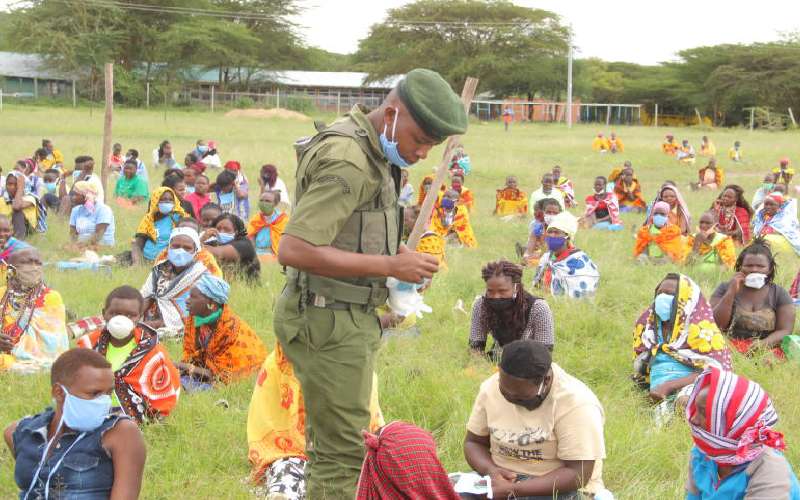×
The Standard e-Paper
Stay Informed, Even Offline

Maasai beadwork makers wait to receive relief food from Narok Governor Samuel Tunai. The women used to sell “Ushanga” to tourists. [Robert Kiplagat, Standard]
Nashuluni Maitai always looks forward to the annual wildebeest migration spectacle.